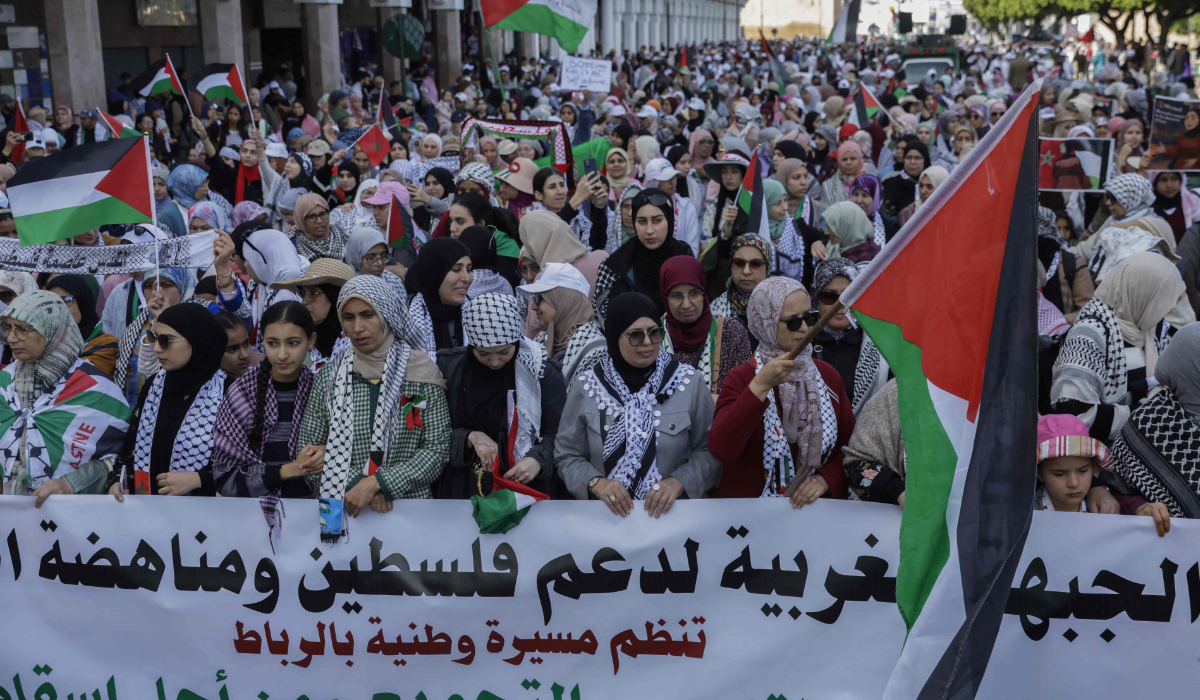London: Israeli military strikes in Gaza have “normalised” mass casualty events in Western media that previously would have been “remembered forever,” the director of the UN Relief and Works Agency for Palestine Refugees in the Near East has said.
Sam Rose was speaking in the wake of the Israeli bombing of an UNRWA-run school in Nuseirat. Local medical workers say at least 40 people were killed.
UNRWA has around 300 schools in Gaza, but none have been able to function as anything other than refugee shelters since hostilities began on Oct. 7.
More than 36,000 people have been killed and hundreds of thousands of Gazans displaced by the fighting.
Rose told The Guardian: “There were about 6,000 people sheltering in that school. There are rules of war that we call on all sides of the conflict to adhere to: to protect the inviolability of our installations. There are also principles of distinction, and of proportionality.
“People will have been sheltering in the courtyard of the school in the most desperate of conditions and there will have been no warning that this strike has taken place. It happened in the middle of the night about 2 a.m.
“We’ve seen this time and time again, to the extent that it’s almost become normalised. In previous conflicts, single incidents like this would cause shock and outrage and would be remembered forever. Whereas it seems in this conflict it will be this one will be replaced by another in a few days’ time unless it all comes to an end. So, it almost becomes commonplace and mundane that these things are happening. We have normalised horror.”
Rose added that he was taken aback by “the sheer number of people with crutches and wheelchairs with missing limbs, with wounds” during his last visit to Gaza.
He said the conflict is having “pretty dramatic humanitarian consequences” on the enclave, with some areas “largely out of control.”
Rose added: “There will be a psychological reckoning at some point. People’s requirement to adjust repeatedly to the realities of life in Gaza is something that no one should have to put up with.”
As the conflict has endured, many thousands of people have sought shelter at UNRWA schools as they are equipped with solar panels and can provide limited amounts of clean water.
However, Israel’s continued assault on the southern city of Rafah has forced many to flee the area, having previously sought refuge from fighting further north in Gaza City and Khan Younis.
Rafah’s population, at one point hosting 1.4 million refugees in addition to 270,000 residents, is now believed to be around 100,000.
Rose said: “Those that came to Rafah as refugees were the first to leave, followed by families that had lived in the town all their lives.
“We would basically see women and children sat on the side of the road with their belongings packed up neatly beside them — mattresses, bags of flour, jerry cans, book, clothes.
“The guys had gone on to pitch and find a plot of land or connections or whatever. And then they’d come back later. They’d hire a truck, and they’d bring the rest of the family but we saw lots of families, and mainly women and children, sit by the side of the road waiting for help.”
He said aid supplies are insufficient to supply such a high number of refugees with necessary food, shelter and equipment.
Rose added: “What has happened in Gaza is that things have got incredibly bad incredibly quickly, so people have moved from relatively stable to phase five famine conditions in a short period of time.”



























